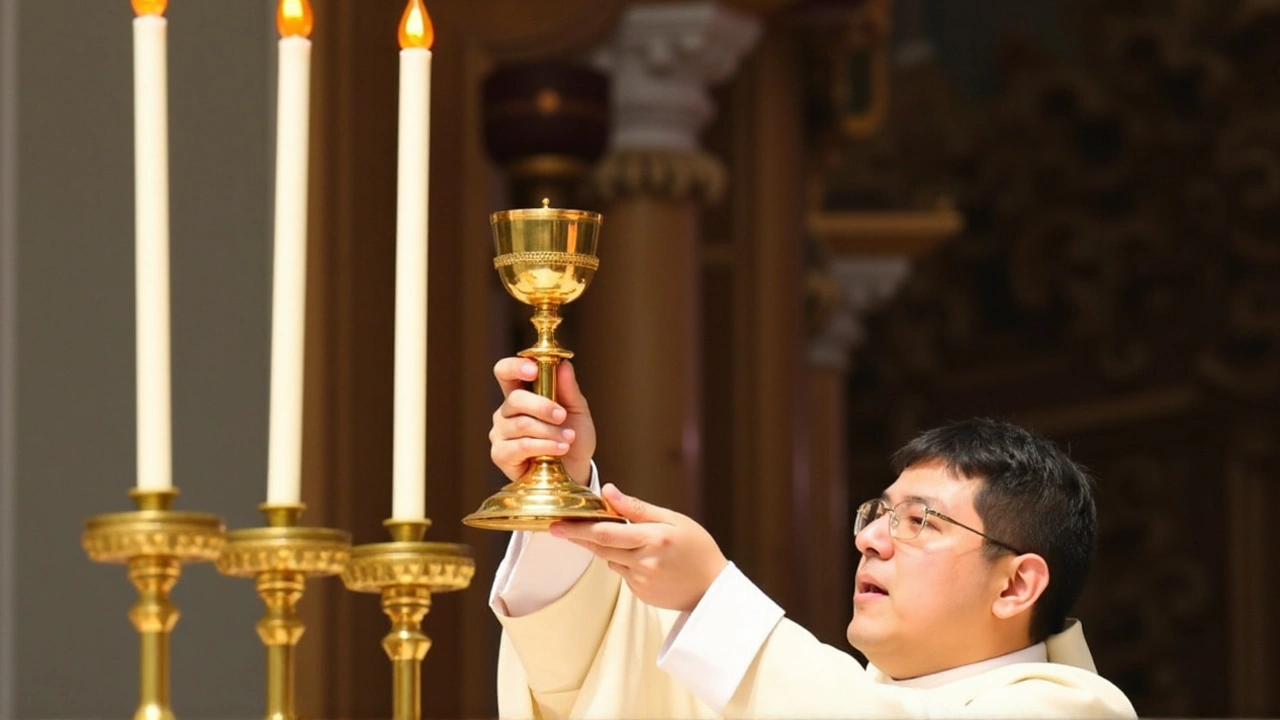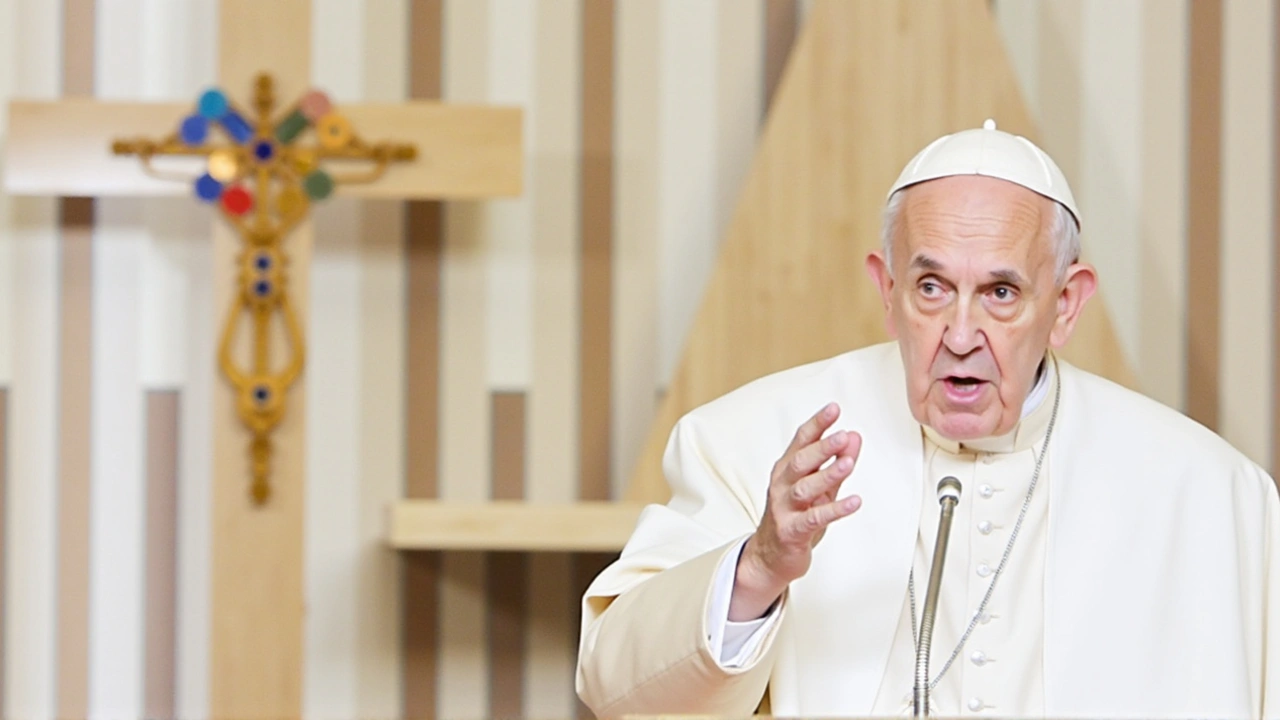Pope Francis Appoints 21 New Cardinals, Including Toronto's Archbishop Leo
In a notable move that showcases the evolving sphere of influence within the Catholic Church, Pope Francis has named Archbishop Francis Leo of Toronto among 21 new cardinals. As the sole representation from North America in this batch, Archbishop Leo’s appointment stands as a significant acknowledgment of the important role he plays in the Catholic community. Pope Francis's selection underscores his continued efforts to broaden the geographical and cultural diversity of the College of Cardinals.
Archbishop Leo, at 53 years old, has already had a distinguished clerical career marked by his strong leadership and commitment to faith. Hailing from Montreal, he previously served as the vicar general and moderator of the Curia of the Archdiocese of Montreal, and as an auxiliary bishop in the same city. His remarkable leadership capabilities led to his recent appointment as the archbishop of Toronto in March 2023. Consistent with his humble nature, Leo expressed a deep sense of humility and honor at being chosen as a cardinal. He emphasized his reliance on the prayers and support of the faithful in Toronto, as he commits to fulfilling his responsibilities in the College of Cardinals.
The Significance of the Consistory Ceremony
The newly appointed cardinals will formally assume their roles in a ceremony known as a consistory on December 8, a date that is eagerly anticipated within Catholic circles around the world. During this event, they will receive their distinctive red hats, symbolizing their readiness to defend the faith at the cost of their own lives—a long-standing tradition in the Catholic Church. For Archbishop Leo, this moment will be both a personal milestone and a moment of great reflection on his vocation to serve the global church while shepherding the community of the Archdiocese of Toronto.

Global Representation Among the New Cardinals
Archbishop Leo's appointment is part of a broader strategy by Pope Francis to bring in a fresh wave of leadership from all corners of the globe. Alongside Leo, esteemed clergy from places like South America are included as well, further demonstrating Pope Francis's commitment to global representation. Notably, appointments from South America such as the archbishop of Santiago del Estero, Argentina, Vicente Bokalic Iglic; the archbishop of Porto Alegre, Brazil, Jaime Spengler; and the archbishop of Santiago, Chile, Fernando Natalio Chomali Garib, reflect the diversity and breadth of this year's list.
Noteworthy Appointments
Among the newly named cardinals is Monsignor Angelo Acerbi, a retired Vatican diplomat known for his resilient spirit and bravery. Acerbi made headlines during his career when he was held hostage for six weeks by leftist guerrillas in Colombia. His inclusion in the College of Cardinals brings a wealth of experience and insight into the complexities facing the church in politically volatile regions.
This latest round of appointments marks one of the significant steps Pope Francis has taken to influence the future direction of the Church. By expanding the College of Cardinals, which is responsible for electing the Pope’s successor, Francis cements his unique vision and ethos onto the bedrock of Catholic leadership. The appointments are not just ceremonial; they map out the trajectory the Church is likely to follow in the coming decades, steering clear of geopolitical boundaries traditionally governed by previous Popes.
The Implications of Pope Francis's Leadership
Since the beginning of his papacy, Pope Francis has been known for his progressive stance on several theological and social issues, often challenging the status quo within the longstanding traditions of the Catholic Church. By making these new appointments, he signals a continuation of this progressive trajectory. Reports suggest that Pope Francis has increased the number of cardinal appointments from regions that had previously received less attention in the formation of the College of Cardinals.
In conclusion, Archbishop Francis Leo's appointment as a cardinal fits neatly within Pope Francis's broader ambition to generate a globally inclusive church. The move aligns with a vision of leadership that embraces cultural diversity and understands the nuanced challenges facing each distinct Catholic community. These selections, representative of a new era, put a spotlight on the global south while providing evidence of the Pope’s commitment to a worldwide church focused on pastoral care and evangelization. As the world looks to December 8 and the transformative consistory ceremony, the selections made by Pope Francis offer a glimpse into the continually evolving leadership of the Catholic Church.

SUBHANKAR DAS
October 9, 2024 AT 01:00Secret Lands Farm
October 9, 2024 AT 03:00Tamir Duberstein
October 10, 2024 AT 00:49John Bothman
October 10, 2024 AT 16:06Dinesh Gupta
October 11, 2024 AT 10:35Shalini Ambastha
October 12, 2024 AT 21:22Amanda Kelly
October 12, 2024 AT 22:21Jessica Herborn
October 13, 2024 AT 18:38Lakshmi Narasimham
October 14, 2024 AT 16:36Madhuri Singh
October 16, 2024 AT 00:46Amanda Dempsey
October 16, 2024 AT 13:26Ruth Ellis
October 17, 2024 AT 00:47Peter Novák
October 17, 2024 AT 09:51Siphosethu Phike Phike
October 18, 2024 AT 08:01Mitchell Ocran
October 18, 2024 AT 09:41Todd Gehrke
October 18, 2024 AT 14:57Allison Brinkley
October 20, 2024 AT 13:16